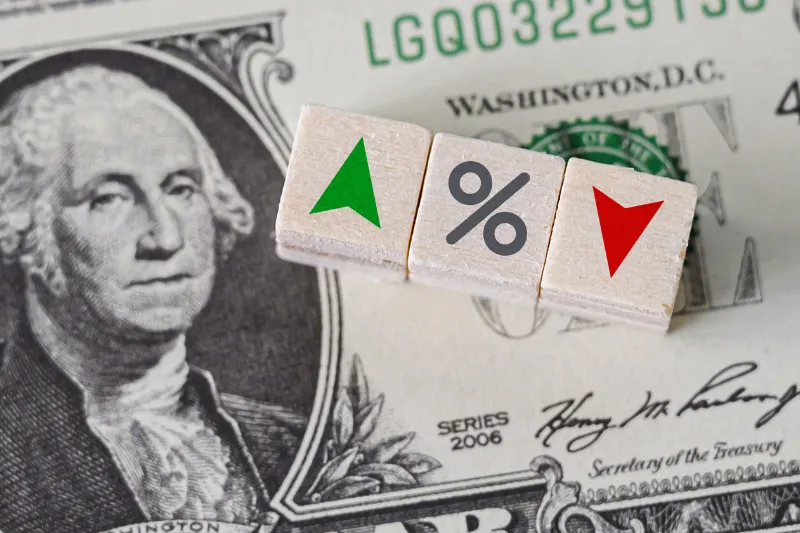Does a Mortgage Broker in Petaluma Cost Money? If you're considering buying a home in…
Understanding Interest Rates: A Comprehensive Mortgage Q&A
Introduction to Mortgage Q&A: Decoding Interest Rates
Let’s dive into the world of mortgages, focusing on one question everyone asks: What’s the deal with interest rates? Think of interest rates as the cost of borrowing money. The bank loans you cash to buy a house, and in return, you pay them back with a little extra on top. That extra is what we call interest. Generally, these rates can change based on factors like the economy, your credit score, and the type of loan you choose. Lower rates mean cheaper borrowings, saving you a decent chunk of change over time. It’s a bit like a sale at your favorite store; when interest rates are low, it’s a good time to buy. Keep this in mind: your interest rate affects your monthly payments and the total amount you’ll end up paying for your home. So, understanding how interest rates work can help you make smarter decisions about when to jump into the housing market.
What Are Interest Rates and How Do They Affect Your Mortgage?
Interest rates are basically the cost of borrowing money. Think of it as a fee you pay to your lender for using their money to buy a house. These rates change often, and they play a big part in determining how much you’ll pay monthly for your mortgage. The higher the interest rate, the more your monthly payments. Simple as that. Now, when it comes to your mortgage, you’ll mainly deal with two types: fixed and variable rates. Fixed rates stay the same throughout your loan term, making budgeting easier because your payment won’t change. On the other hand, variable rates can change, meaning your monthly payment could go up or down. The economy, inflation, and policies set by the Federal Reserve influence these rates. So, a tip: keeping an eye on the economy can give you hints about where interest rates might go, helping you make smarter decisions about when to borrow.
Fixed vs. Variable Interest Rates: Which One is Right for You?
Choosing between fixed and variable interest rates when getting a mortgage can feel like a gamble. Here’s the deal: with a fixed interest rate, your monthly payments stay the same for the life of the loan. It’s predictable, no surprises. Think of it as locking in the cost of borrowing money for a long time. Now, variable interest rates are a different adventure. They change over time, based on the market. This means your payments could go up or down. It’s like riding a rollercoaster, where your mortgage payments can change, offering the chance to pay less when rates drop. So, who goes for which? If you love stability and want to sleep easy knowing exactly what you’ll pay each month, fixed is your friend. Now, if you’re a bit of a risk-taker, or believe rates will drop, and you can handle the possibility of paying more, variable might be up your alley. Remember, it’s about what feels right for your wallet and your peace of mind.
The Factors That Influence Mortgage Interest Rates
Several elements come into play when it comes to setting mortgage interest rates. First off, the broader economic environment plays a big role. When the economy is strong, rates tend to go up, and when it’s weak, rates typically drop. Then there’s inflation. Higher inflation often leads to higher mortgage rates. Lenders want to make sure they’re making money in real terms, after all.
Your personal financial situation also matters a lot. Lenders look at your credit score, income, debt levels, and the size of your down payment. A better credit score can help you snag a lower interest rate because it signals to lenders that you’re a low-risk borrower.
The type of loan you choose affects your rate too. Fixed-rate mortgages usually have higher rates than adjustable-rate mortgages at the beginning. However, adjustable rates can increase over time. The loan term is another factor. Shorter loan terms often have lower interest rates but higher monthly payments.
Lastly, government actions can influence rates. The Federal Reserve doesn’t set mortgage rates directly, but its actions impact the economic environment and can lead to rate shifts. Government-backed loans, like FHA or VA loans, might also offer different rates compared to conventional loans.
Understanding these factors can help you navigate the complex world of mortgage interest rates and potentially save a lot of money over the life of your loan.
How to Find the Best Mortgage Rates: Tips and Strategies
To snag the best mortgage rates, you need a plan. First, boost that credit score. Strong credit equals lower rates. Then, put down a meaty down payment. More upfront slashes your rate. Shop around. Don’t settle on the first lender you meet. Compare offers. Lastly, consider the timing. Rates fluctuate, so watch the market. Use these strategies, and you’ll find a rate that makes your wallet happy.
The Impact of the Federal Reserve on Mortgage Interest Rates
The Federal Reserve plays a big role in influencing mortgage interest rates, but it doesn’t set them directly. Instead, it controls the federal funds rate, which is the interest rate banks charge each other for overnight loans. This rate can affect how much money is available for lending, including mortgages. When the Federal Reserve raises the federal funds rate, it usually becomes more expensive for banks to borrow money. Banks, in turn, might increase the interest rates they charge for loans, including mortgages, to make a profit. So, if you hear that the Federal Reserve is hiking up rates, brace yourself for possible higher mortgage rates. On the flip side, when the Fed cuts the federal funds rate, borrowing costs for banks can decrease, potentially leading to lower mortgage interest rates for consumers. However, it’s not a one-to-one relationship. Other factors, like inflation, the economy’s health, and housing market demand, also play a part in setting the rates you see. Keep an eye on the Federal Reserve’s moves, but remember, they’re just one piece of the bigger picture.
Refinancing: Lowering Your Interest Rates and Monthly Payments
Refinancing your mortgage means replacing your current loan with a new one, often with a lower interest rate and resulting in lower monthly payments. It’s a move many make to save money over time. The main reasons folks refinance include snagging a lower interest rate, shortening their loan term, converting between adjustable and fixed-rate loans, or tapping into home equity. If interest rates have dropped since you got your original mortgage, refinancing could be a smart move. A lower interest rate means you’ll pay less to your lender over the life of your loan. Here’s the deal: even a slight rate decrease can make a big difference in your monthly payments and the total amount you’ll pay for your home. But, remember, refinancing isn’t free. Closing costs can add up, and it’s crucial to make sure the savings from a lower rate outweigh these fees. Essentially, do the math to ensure refinancing makes financial sense in your scenario.
Mortgage Q&A: Common Questions About Interest Rates Answered
What’s the deal with interest rates on a mortgage, you ask? They’re the cost you pay for borrowing money from a lender to buy a house. Think of it like renting the money, and the interest rate is your rental fee. So, why do these rates go up and down? It’s all about the economy. When things are going well, rates might rise because lenders can ask more. When the economy is slow, rates drop to encourage borrowing. What’s a good rate? It depends on the market, but right now, anything around 3% to 4% is pretty solid. But keep in mind, your credit score plays a huge part. Better score, better rate. Can you lock in a rate? Absolutely, and it’s smart if you think rates will go up before you close on your house. This way, your rate stays the same even if the market rate goes up. But remember, if rates drop, you’re stuck with your rate unless you want to refinance, which is a whole other can of worms. Interest rates seem small but make a big difference in your monthly payment and how much you pay over the life of your loan. So, get the best rate you can and understand what you’re agreeing to.
How to Prepare Financially for Fluctuating Interest Rates
Getting ready for changing interest rates means being smart and proactive about your finances. First, understand that interest rates move up and down because of the economy and decisions by the Federal Reserve. This can affect your mortgage payments if you have a variable rate. Here’s how you can brace yourself for these changes.
Build a stronger emergency fund. With rates changing, your payments might go up. Having extra cash means you won’t be caught off guard.
Consider refinancing. If rates drop, refinancing your mortgage to a lower rate can save you money on your monthly payments. But, do your homework first, costs are involved.
Pay down debt. Especially high-interest debt like credit cards. Lowering your debt improves your credit score, potentially giving you access to better mortgage rates.
Keep an eye on your budget. If rates rise, your payments could increase. Make sure your budget has room to adjust without squeezing your lifestyle too much.
Stay informed. Understand what’s happening with interest rates by following financial news. This lets you make timely decisions, like locking in a rate before increases.
Being financially prepared for interest rate fluctuations isn’t complicated but requires constant awareness and a bit of planning.
Conclusion: Navigating Your Mortgage with Confidence
With the right information, understanding mortgage interest rates doesn’t have to be complicated. Remember, rates fluctuate based on a mix of global economic factors, national financial policies, and personal credit health. The key to confidently navigating your mortgage lies in shopping around for the best rates, maintaining a good credit score, and understanding the terms of your mortgage. Don’t rush. Take your time to compare offers from different lenders and ask questions about anything that doesn’t make sense. Ultimately, your goal is to secure a mortgage that fits comfortably within your budget while saving you the most money on interest over time. Stay informed, stay patient, and make decisions that best suit your financial situation.





